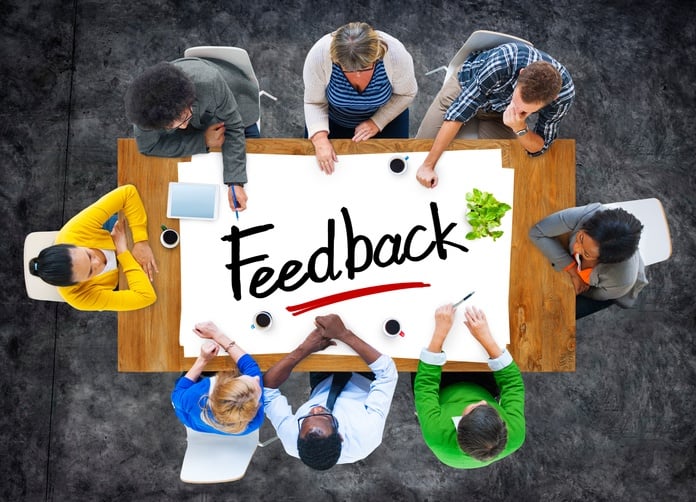More is Less with Social Feedback

What if I told you that the way to heading off those nagging complaints you hear every time you conduct a performance review cycle is to ask people to provide more feedback? Would you call me crazy?
Fortunately, my clients did not do so (at least not to my face) when we began speaking about the idea of Social Performance Management earlier this year. Social feedback tools provide a platform for employees to give and receive performance feedback on goals and competencies throughout the year. And Social Performance Management is a natural evolution – a system that employees transition into comfortably due to their familiarity with social technology. Social Feedback has received a lot of attention and organizations are interested -- keen HR leaders are even exploring these systems in depth. However, at least at present day, few have taken the plunge into this next frontier of performance management. Read more in Social Performance Management Goes Mainstream in 2012.
If I were the gambling type, I would bet that Social Feedback will completely overtake the Performance Management process as we now know it in less than 5 years. In this very near future, organizations using legacy systems that ask employees to weigh in twice a year on a performance form will be the same companies who are still allowing their employees to run IE 6.0. No longer will we be wedded to the old paper-based form concept that even now we routinely translate into an online version of the hard copy. Instead, working collaboratively and providing each other with feedback in real-time via a networked system across the entire organization will become the norm.
And it will be about time. To compete in an even faster-paced economy, performance goals and feedback will need to be managed in real-time by everyone simultaneously. This feedback will be tied to goals happening now, not those set 6 months ago that languished until they appeared again in some Year-End evaluation form. Further, this feedback will be given in the moment -- when it’s fresh and top of mind – making it much more context-specific and actionable. Driving this development-on-demand culture will allow organizations to proactively target performance issues, and avoid the repercussions that come when negative feedback mounts across an entire performance period and is not addressed in a timely manner.
Present day, organizations are still experimenting with what works best. For example, the focus of some Social Performance Management tools available today is on employee rewards/recognition. There may be a tangential link to performance results, but the emphasis is mostly on building engagement as employees receive recognition and build their reputation through primarily positive feedback. While all the “Likes” and “Thumbs Up” serve a purpose, I believe that the true power of Social Feedback systems will be found in creating a networked system with strong ties to the formal performance management and succession planning processes. Until Social Feedback becomes more mainstream, viaPeople is offering early adopters a way to ease into the transition by providing tools that closely parallel and are used in conjunction with more traditional performance management systems.
Social Feedback that provides a completely open view of individual, team and organization-wide results can seem a bit daunting on the surface. Nevertheless, this is the direction we are headed. Employees who are already so comfortable with the social networking metaphor will more readily embrace such transparency, especially as the benefits of working within the networked framework become clear. Some of the benefits Human Resources can expect to realize with the adoption of social feedback are:
- Social feedback that is specific, timely and spurs continuous coaching and development.
- Engagement through goal alignment, recognition, and reputation enhancement.
- Cross-collaboration within teams, departments, and across the organization.
- Privacy enhancements to protect confidentiality and increase buy-in.
- Real-time status updates that keep everyone involved and productive.
- Robust individual, team, and organization-wide reporting.
- Detailed history that is automatically transferred into the formal Performance Evaluation process.
Want to learn more about how you can integrate Social Feedback into your Performance Management process?

Amanda Seidler, Ph.D.
aseidler@viapeople.com
Share this
You May Also Like
These Related Stories

8 Benefits of Real-Time Feedback

5 Ways to Take the 'Creep' Out of Employee Performance Ratings


